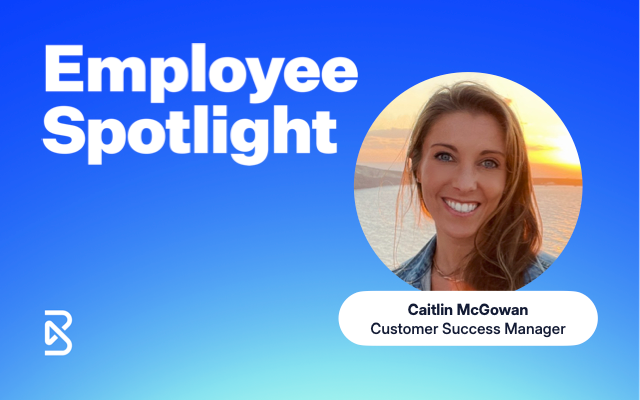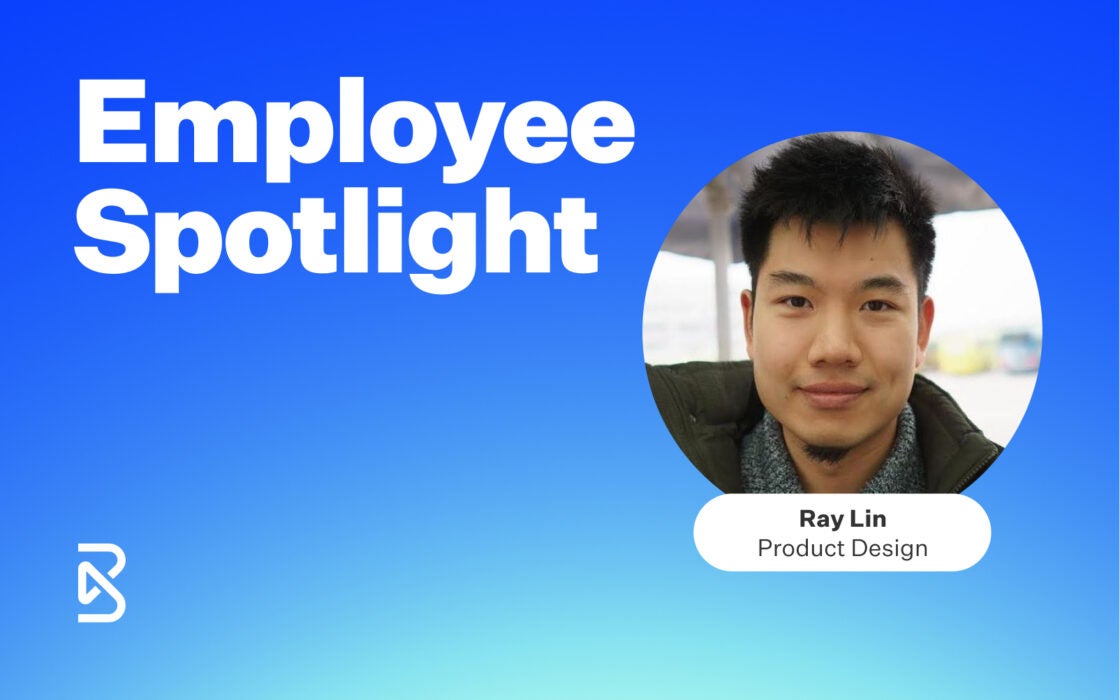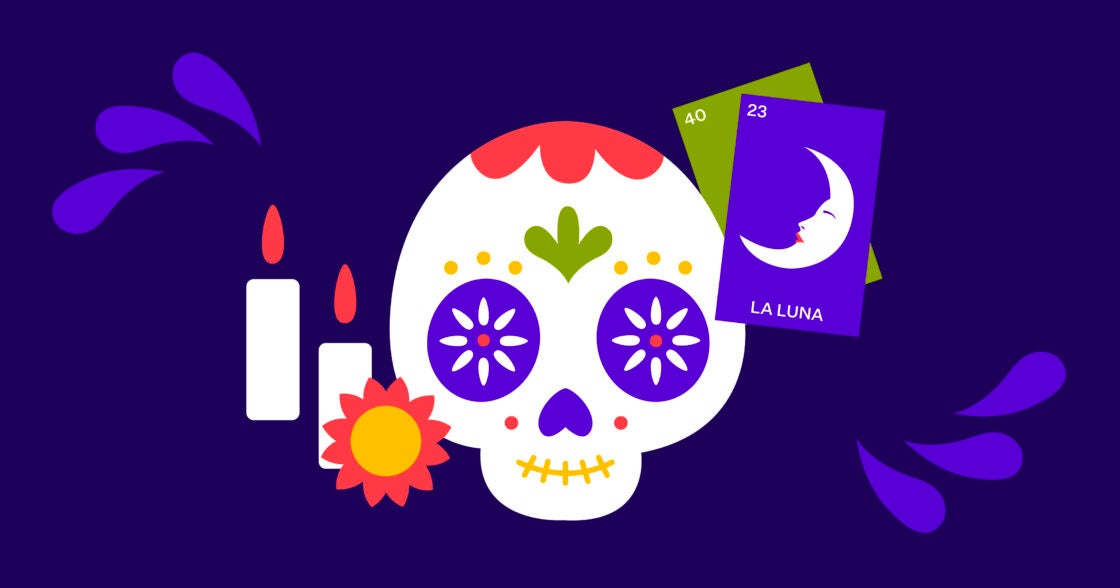May 31, 2021 in Blendkind
A space for veterans to lead — Blend Salutes
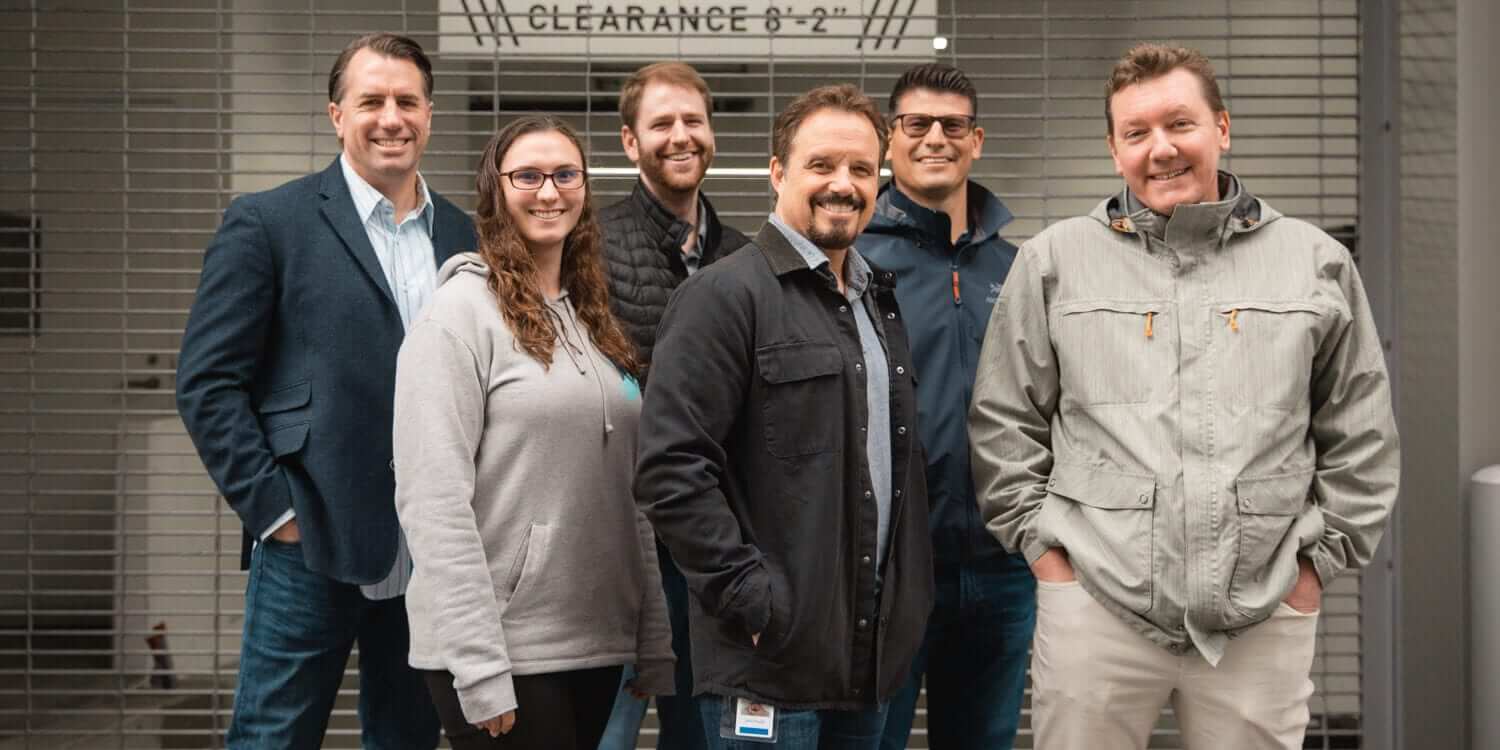
My military story starts with my dad, who was deployed in Germany during the Vietnam War as a physician.
I always wondered why my family had spent so many years in Germany. One day my dad explained that he had signed up for additional years of military service in Germany to avoid being deployed in Vietnam. He said that many of his colleagues that had gone to Vietnam had come back as different people, having been very scarred by their experiences; my dad said he didn’t want to end up like them. My father had many friends who didn’t return, and I remember finding their names with him on the Vietnam War Memorial when visiting Washington, D.C., as a child.
This is the story of my military life, transition into civilian life, and eventual work at Blend.
My journey to the military
As a junior in high school, I remember having delusions of grandeur about the military, thinking that they could whisk me away from small-town Iowa and pay for a house and car on the other side of the planet. While that’s not that far from the truth, I needed my parents’ signature to do this. I was trying to fly under the radar and disappear, so that wasn’t going to work. As a senior, I had turned 18 and was able to sign up on my own without my parents’ consent. They didn’t really understand why I was signing up, and frankly, I wasn’t sure, either — other than thinking it might be cool to shoot a gun and go to basic training, which I had seen in movies. Maybe it was just an escape from small-town Iowa.
Basic training and beyond
In June of 1992, I went to Fort Sill, Oklahoma, for Basic Training. It was extremely hot and not the friendliest environment. One thing that really struck me at the time was that both of my drill sergeants were ministers. Behind that hard, crusty shell, they were actually pretty nice guys. It was the second year, where the military offered split training so that I could do basic training during the summer, join a unit, and then do my military job training the second summer. This allowed me to attend college without missing any school. I had signed up for eight years in the Army Reserve as a 13 Bravo, or cannon crewmember. Once basic training was over, I joined an artillery unit in Iowa. One weekend a month, I would go to the unit and train with my fellow soldiers. I was the ammunitions specialist for our brigade and would deliver rounds to each platoon during our military exercises.
In college, I also joined ROTC, where I learned about the differences between being an officer versus being enlisted. As an enlisted soldier (non-officer), I was responsible for my primary job (delivering ammunition or driving the tank). As an officer, I was responsible for my unit and making strategic decisions in the best interest of my team and our leadership objectives. During my first year in ROTC at Iowa State University, I was selected to go to airborne school in Fort Benning, Georgia, where I learned how to jump out of a plane and parachute to the ground. I earned my blood wings (your commander punches your airborne badge pins into your chest) that summer. This is that moment:
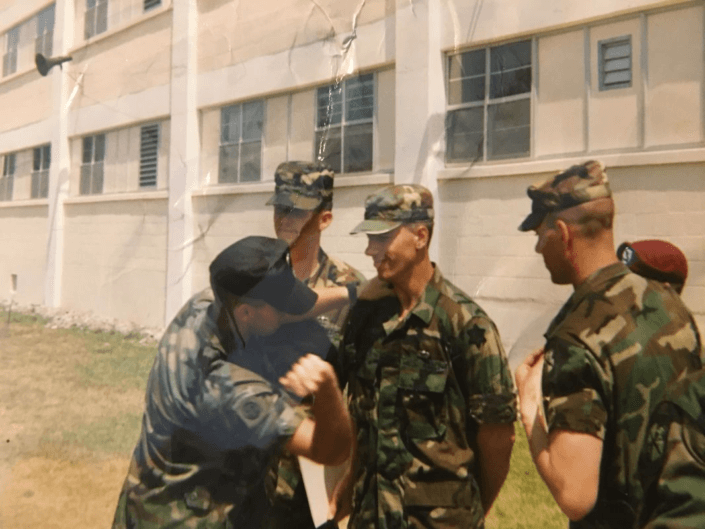
Fast forward a couple of years: The government made cutbacks and my unit was closed down, but I still had a commitment to fulfill, so I joined a Cavalry unit in Des Moines, Iowa, where I was now a 19 Kilo, or tank driver, which was a lot of fun. I remember going to Boise, Idaho for tank school and learning how to drive, repair, and shoot the tank. I started out driving M60 tanks from the Vietnam War era, but a few years later our unit was upgraded to M1A1 Abrams tanks, which were almost indestructible. After about six years as a tank driver and two years as a cannon crewmember, I had fulfilled my commitment and decided to hang up my military uniform and work on getting a civilian job post-college. Fortunately for me, my eight years in the military were between both Desert Storm and Operation Iraqi Freedom/Operation Enduring Freedom, so I never was fully activated during wartime. Here’s a picture of me standing on the tank in Boise, Idaho:
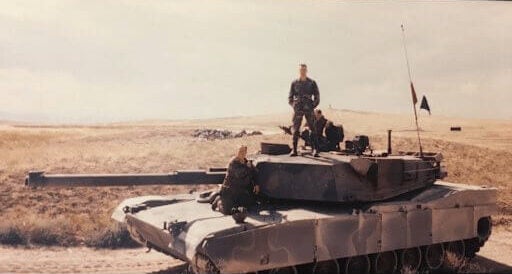
Transitioning to civilian life
The military taught me a lot. It taught me the importance of being organized, being punctual, and being a leader. Going into the military, I was a bit wild and crazy, but I came out very disciplined and confident. I’m very appreciative of the time that I spent in service and am even prouder of my fellow veterans. While I didn’t go to war, I knew a lot of good friends that did. I sent tons of packages to my friends who were deployed in the Middle East and helped them when they had to transition back home, with many of them dealing with post-traumatic stress disorder. Though many could disagree with our nation’s military engagements overseas, I know we can all agree that our troops deserve respect for the service they have given and continue to provide for our country. I’m happy to have been a small part in that process and to share my experience with those I now work with today.
Leveraging my military background in startup life
Blend is a fast-paced, ever-changing, dog-friendly work environment. We are constantly evolving, and change is a way of life, much like the military was, which makes Blend a natural fit.
The military trained me to be ready at a moment’s notice, to act without clear guidance, and to trust my instincts. Blitzscaling at Blend reminds me a lot of my military life. While I have worked at other startups, my experience at Blend has been unique. The leadership team has gone above and beyond to help train, coach, and overinvest in our employees, very similarly to the military leaders I once worked closely with. Blend thrives on continuous feedback, which is why we are in a constant state of change, continuing to evolve our processes, tools, product, and people. I am grateful for the opportunity to apply my leadership skills with my team, on our projects, and in shepherding our customers.
The military taught me to be punctual, to do my due diligence, to be detail-oriented, to work as a team, and to complete the mission. These skills fit nicely with driving our deployment projects, managing customer expectations, and working cross-functionally to negotiate product commitments at Blend.
As the chair for our Veteran’s ERG group, Blend Salutes, I look forward to assisting, coaching, and guiding other military veterans as they transition to civilian jobs and apply the skills they learned in the military to startup life and beyond. I strongly value and appreciate my military experience and the skills I learned along the way and am excited to pay it forward with other military veterans like myself.
Please feel free to reach out if you would like to learn about opportunities for veterans at Blend. We look forward to hearing from you, and most importantly, “Thank you for your service to our country!”
Photo Credit: Kaitlin Sullivan
Find out what we're up to!
Subscribe to get Blend news, customer stories, events, and industry insights.

